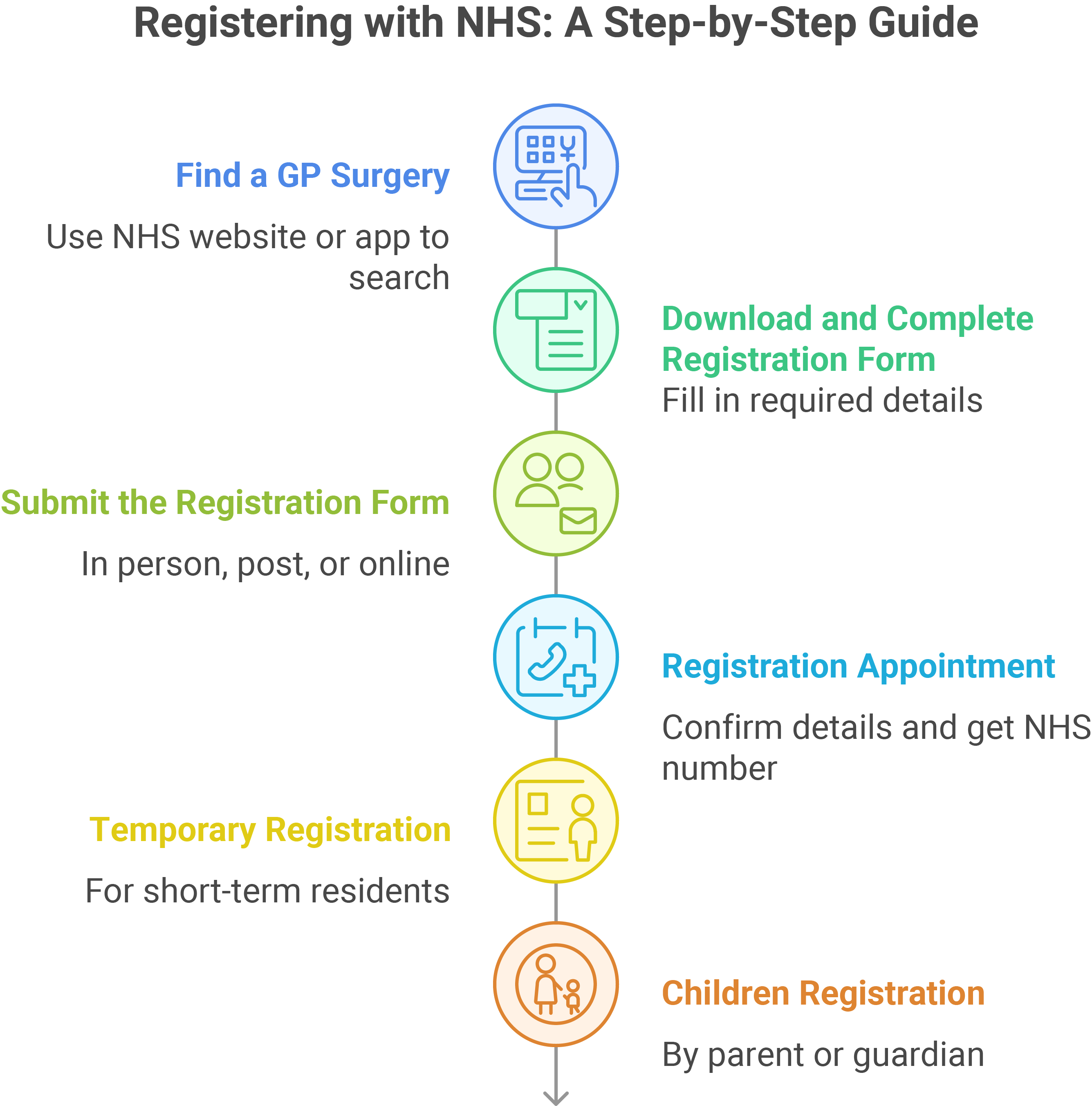Health & welfare for NRIs in UK
With one of the most advanced healthcare systems in the world, you will be looked after the health and wellbeing both mental and physical. UK universities work hard to ensure that students are safe and supported during their stay
The UK’s NHS (National Health Service) is one of the world’s best healthcare systems in the world, offering first-class, safe, and modern treatment and support.
The IHS will allow you, if you need it, to consult a doctor on any physical or mental health issue, accident and emergency services, the diagnosis of any sexually transmitted diseases. It also offers reduced-price dental care if provided through an NHS dentist.as you have access to the NHS in the UK, you do not need private medical insurance during your stay.
Shortly after you arrive in the UK, we recommend that you register with a GP (General
Practitioner), a doctor who deals with most general health problems, so that if you do end up needing medical assistance you will be able to access it easily. Most GP surgeries accommodate patients’ requests to see a doctor of a specific gender, if it makes you feel more comfortable.
Immigration Health Surcharge (IHS):
- If you are visiting the UK for less than 6 months, you should have personal medical insurance to cover your healthcare needs.
- If you have a visa that allows you to stay in the UK for more than 6 months, you are required to pay the HIS upfront as part of your visa application.
- If you need a visa to stay in the UK for more than 6 months, as part of your application you will pay an Immigration Health Surcharge (IHS) of £624 per year to gain access to the NHS. However, there is a 25 per cent discount for student visa holders – students pay £470 per year.
- There are certain categories of individuals who are exempt from paying the IHS, including those applying for indefinite leave to enter or remain, health and care workers, and dependents of certain armed forces members.
- Your entitlement to free NHS treatment will typically start from the date your visa is granted and will last until the visa expires.
- If you are not ordinarily resident in the UK and need to pay for NHS treatment, you may be charged at 150% of the national NHS rate.
How to register with NHS?
Here are the steps to register with GP surgery in locality you live, to access NHS services.
GP surgeries are usually the first contact if you have a health problem. They can treat many conditions and give health advice. They can also refer you to other NHS services.
Here are the steps to register with GP surgery in locality you live, to access NHS services.
Find a GP Surgery:
- Use the NHS website or the NHS App to search for GP surgeries in your area.
- Consider factors like location, hours of operation, whether GP surgery is accepting new patients and online registration options.
Download and Complete the Registration Form:
- Download the registration form from the surgery’s website or obtain one from the surgery.
- Fill in all the required details, including your name, address, date of birth, and NHS number (if you have one).
Submit the Registration Form:
- You can submit the form in person at the surgery or through the post or online.
- Some surgeries also offer online registration through the NHS App or their website.
Registration Appointment:
- You may be asked to attend a registration appointment to confirm your details and get your NHS number.
- You’ll likely be asked to provide proof of address and identity documents, such as a passport or utility bill.
Temporary Registration:
- If you’re visiting or living in the area for a short period (less than 3 months), you can register as a temporary resident.
- You’ll need to fill out a GMS3 form and submit it to the surgery.
Children Registration:
- Children under 16 need to be registered by their parent or guardian. This usually means filling in a separate form. You may also be asked to provide a form of ID to prove that you’re their parent or guardian.
- If you have a personal child health record (red book) from the birth of your child, it will help to provide this.
You can refer to NHS website https://www.nhs.uk/ for more details.

